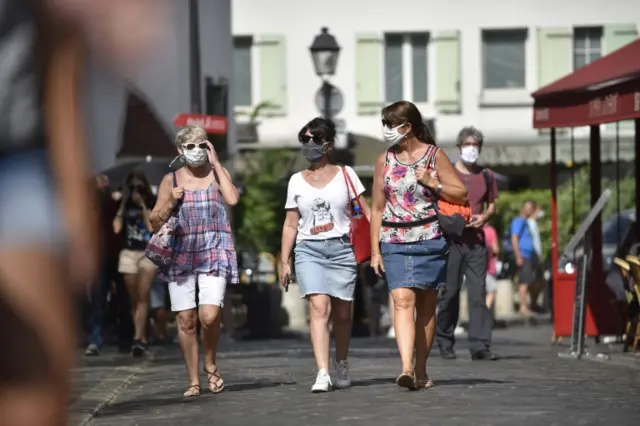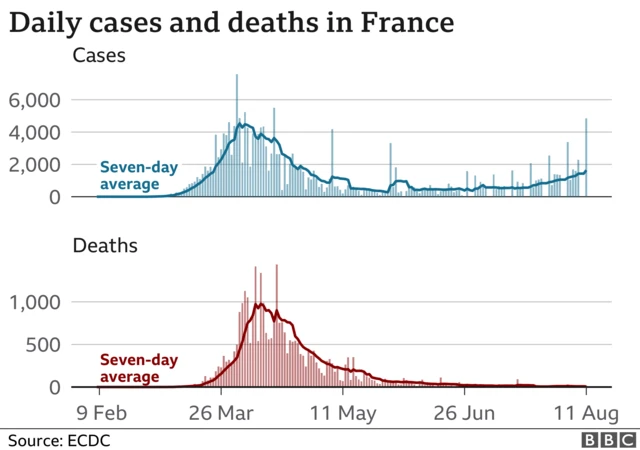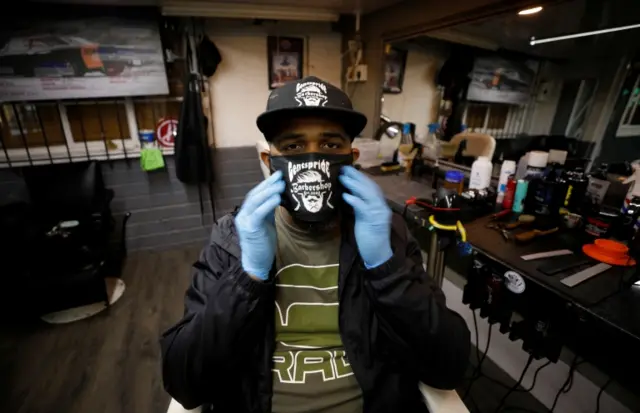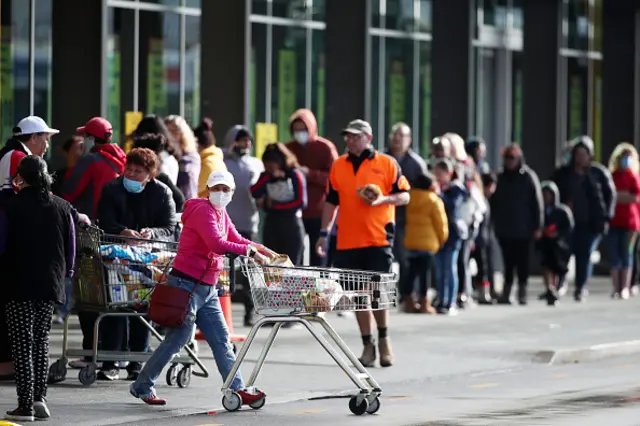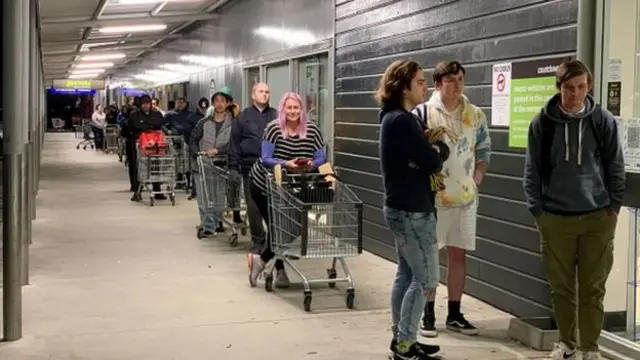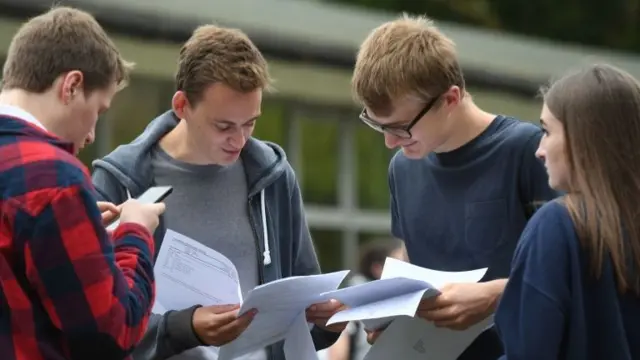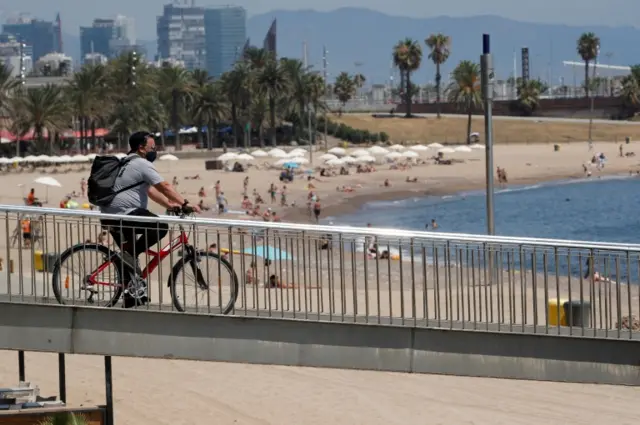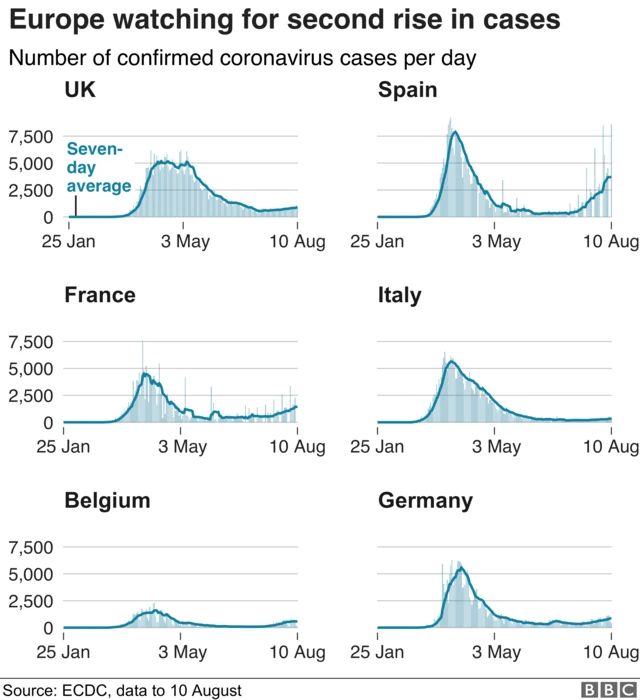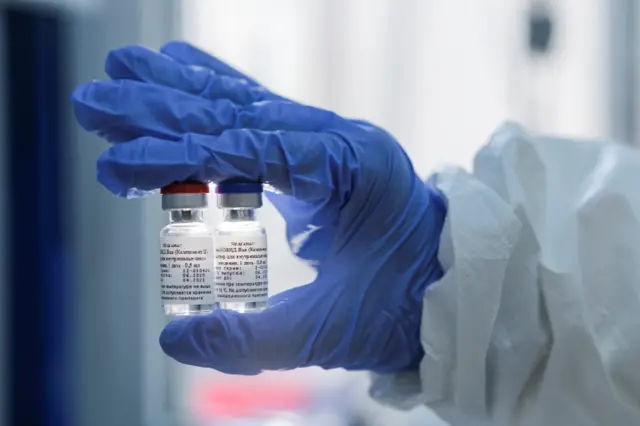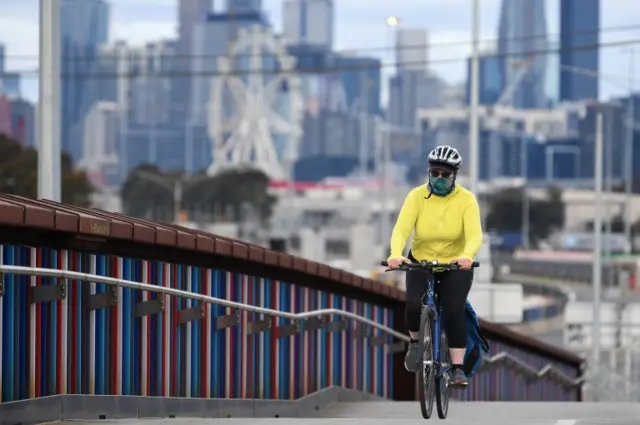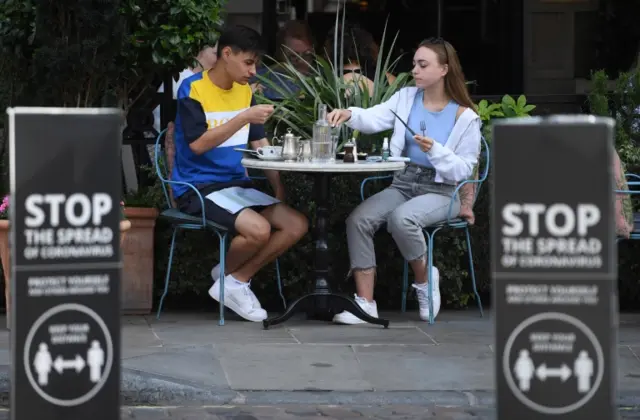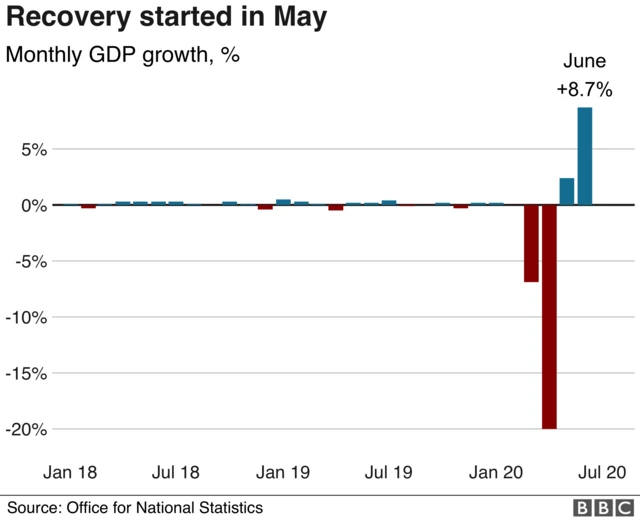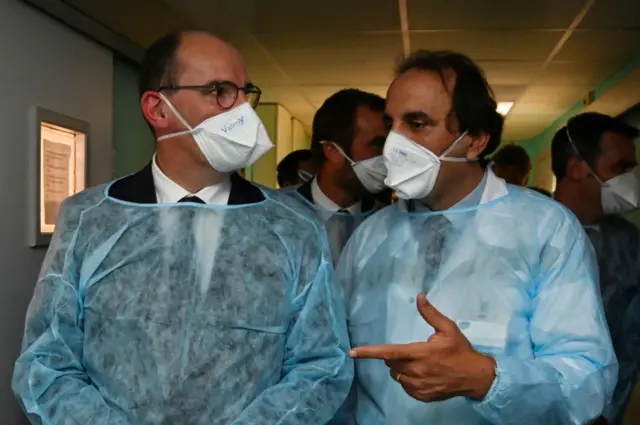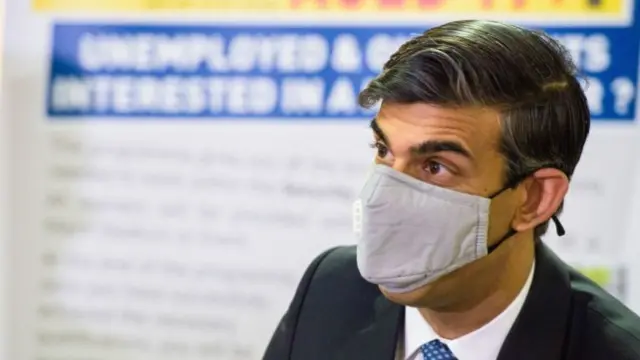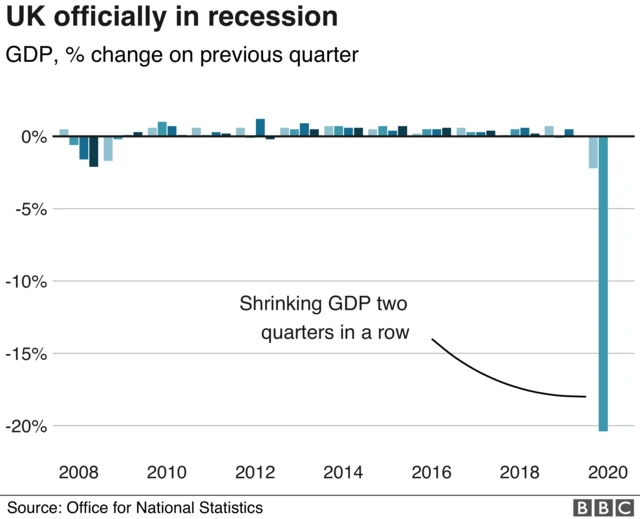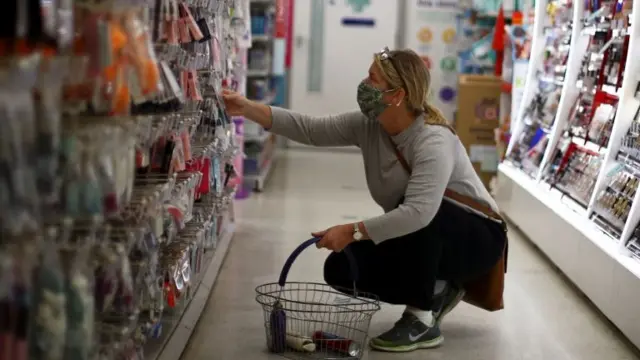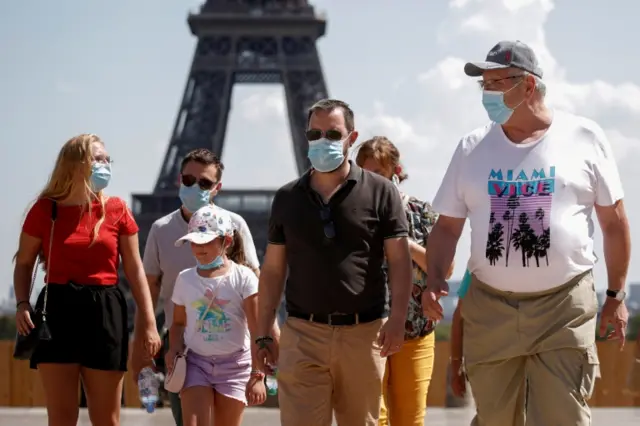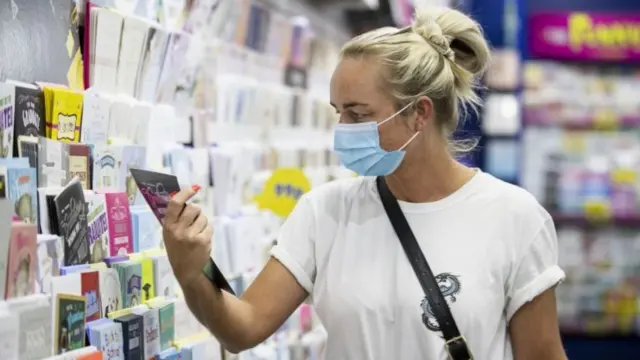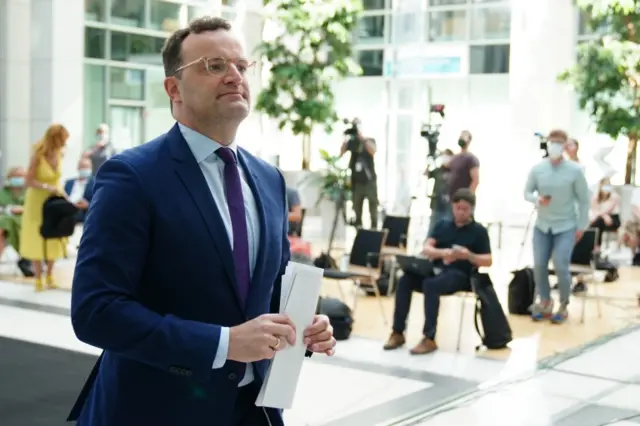Bold action needed immediately - UK business groupspublished at 11:55 BST 12 August 2020
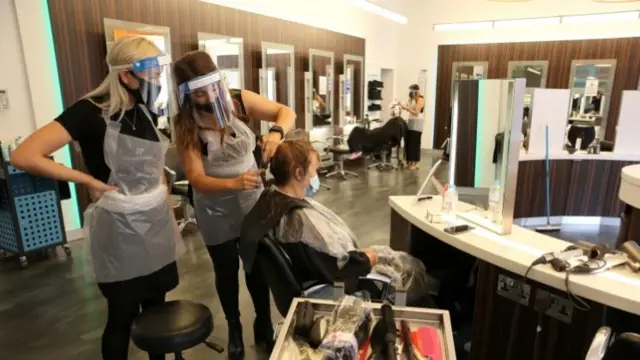 Image source, PA Media
Image source, PA MediaAfter this morning's confirmation that the UK is suffering its worst recession on record, business groups are urging the government to do more to support an economic recovery.
The chancellor must take further action before the autumn statement to help prevent a disaster for jobs and businesses, said the Institute of Directors (IoD) and the British Chambers of Commerce (BCC).
"The battle now is to prevent longer-term scarring from this plunge in economic activity," said IoD chief economist Tej Parikh. "By the autumn, it might be too late to have greatest effect."
Suren Thiru, head of economics at the BCC, is concerned the prospect of a swift recovery is remote, saying: "Bold action is needed to immediately inject confidence back into the UK economy."
Alpesh Paleja, an economist at the Confederation of British Industry, said a sustained recovery was "by no means assured", adding: "The dual threats of a second wave and slow progress over Brexit negotiations are also particularly concerning."
